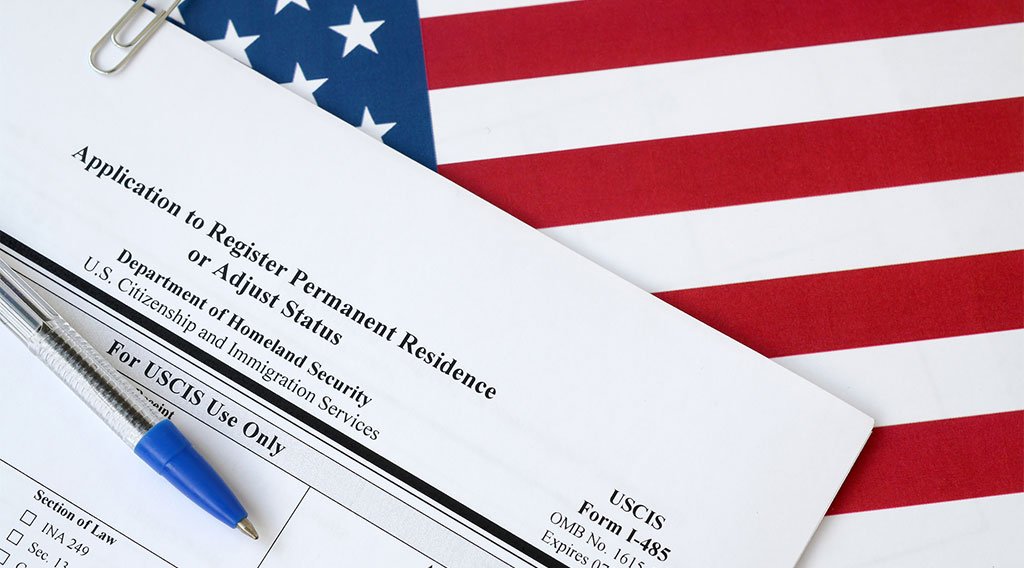What Is My Immigration Status while Form I-485 Is Pending?
The process of adjusting your immigration status in the United States can be both exciting and complex. Once you have submitted your Form I-485, Application to Register Permanent Residence or Adjust Status, you might wonder what your immigration status is during the waiting period. Understanding your immigration status while I-485 is pending is crucial, as it affects various aspects of your stay in the US, including work authorization and travel.
In this article, we will explore the implications of pending I-485 applications on your immigration status, the benefits you may be eligible for during this time, and the actions you can take to ensure a smooth adjustment process. Whether you are a family-based applicant, employment-based applicant, or diversity visa lottery winner, knowing your options while I-485 is pending can help you navigate the immigration journey with confidence.
Understanding The I-485 Adjustment Of Status Process
The Form I-485 is the application to adjust your immigration status to that of a Lawful Permanent Resident (Green Card holder) if you are already physically present in the United States. It is typically filed concurrently with an underlying immigrant petition, such as Form I-130 (for family-based applicants) or Form I-140 (for employment-based applicants). Once the I-485 is filed, USCIS will review your application, conduct background checks, and schedule an interview, if required.
Implications Of Pending I-485 On Your Status
While your I-485 application is pending, your status in the United States depends on the type of visa you held prior to filing the application:
Nonimmigrant Visa Holders: If you were in the US on a valid nonimmigrant visa (e.g., H-1B, L-1, F-1) when you filed your I-485, you are generally allowed to remain in the US and maintain your nonimmigrant status while the application is pending. However, there are exceptions, and you should consult an immigration attorney to determine if any restrictions apply to your specific visa category.
Visa Waiver Program (VWP) Entrants: If you entered the US under the Visa Waiver Program (VWP) and filed an I-485, you are generally not permitted to extend your stay or change your status while the application is pending. You must await the USCIS decision on your adjustment of status.
Expired Nonimmigrant Visa Holders: If your nonimmigrant visa has expired, you are considered to be in a period of authorized stay while your I-485 is pending. This means you can legally remain in the US, but you cannot travel outside the country without obtaining an advance parole document.
If you have overstayed your authorized period of stay, you generally accrue unlawful presence after your I-94 expires. However, filing the I-485 application may protect you from accruing unlawful presence while the application is pending.
Employment Authorization Document (EAD) And Advance Parole
While your I-485 is pending, you may be eligible for an Employment Authorization Document (EAD) and Advance Parole. These documents are commonly referred to as combo cards and serve the following purposes:
Employment Authorization Document (EAD): If you have an approved Form I-765 (Application for Employment Authorization) based on your pending I-485 application, you can legally work in the United States with the EAD. This is especially beneficial for employment-based applicants who want to continue working while their Green Card application is being processed.
Advance Parole: If you have an approved Form I-131 (Application for Travel Document) based on your pending I-485 application, you can travel outside the United States and return without abandoning your Green Card application. Advance parole is essential for beneficiaries of pending I-485 applications as leaving the US without it could lead to the application being considered abandoned.
Maintaining Legal Status And Compliance
While your I-485 is pending, it is crucial to maintain your legal status and comply with all US immigration laws. Any violations, such as unauthorized employment, unlawful presence, or criminal activities, can have severe consequences and may jeopardize your pending I-485 application.
Impact on Dependents
If you have filed I-485 applications for your dependents (spouse and children), they may also be eligible for EADs and Advance Parole based on your pending I-485 application. This allows them to work and travel in the US while waiting for their Green Card application to be processed.
Traveling Abroad While I-485 Is Pending
As mentioned earlier, traveling outside the US while your I-485 is pending requires obtaining an Advance Parole document to avoid abandonment of your application. Departing the US without an approved Advance Parole may result in the denial of your I-485, and you may be unable to re-enter the US using your previous visa status.
Response To Request For Evidence (RFE) Or Interview Notice
During the I-485 adjudication process, USCIS may issue a Request for Evidence (RFE) if additional documentation or information is needed to support your application. It is essential to respond to the RFE within the specified timeframe with the requested evidence. Additionally, if you are scheduled for an interview, you must attend the interview as scheduled and provide accurate and truthful answers to the USCIS officer's questions.
I-485 Approval and Green Card Issuance
Once your I-485 application is approved, USCIS will issue your Green Card, confirming your Lawful Permanent Resident status. Depending on the USCIS workload and the service center processing times, the I-485 adjudication period can vary.
While your I-485 application is pending, it is vital to understand your immigration status and the options available to you. Obtaining an Employment Authorization Document (EAD) and Advance Parole can provide you with valuable benefits, such as legal work authorization and travel flexibility. However, it is essential to maintain compliance with US immigration laws and promptly respond to any USCIS requests or interview notices. By staying informed and following the correct procedures, you can navigate the I-485 adjustment of status process with confidence, knowing that your actions align with the requirements of your pending Green Card application.


